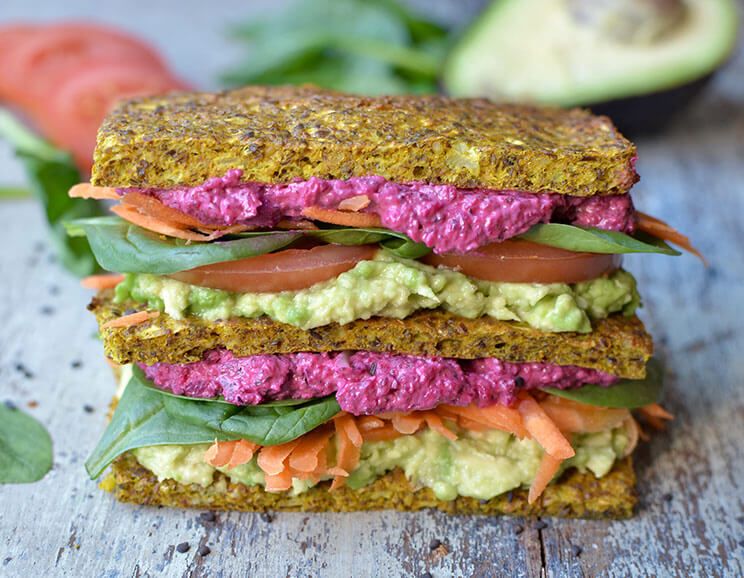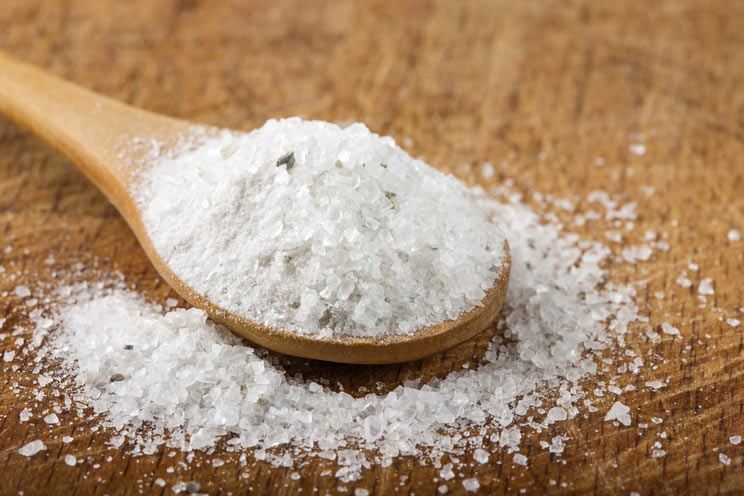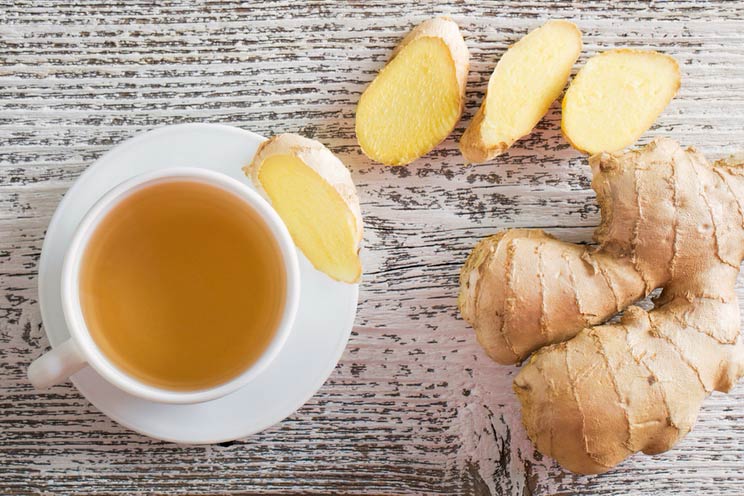An estimated 7 million Americans are plagued by symptoms of acid reflux, and the number only keeps getting higher. (1)
While many people turn to OTC medications to help “put out the fire” of this digestive condition, prescription drugs fail to address the root cause of the problem, making things worse in the long run.
First off, acid reflux, also known as gastroesophageal reflux disease or GERD, is commonly thought to be caused by your body overproducing stomach acid. And while excess stomach acid may contribute to a percentage of GERD cases, low stomach acid (also known as hypochlorhydria) may actually be the underlying cause.
Do you struggle with bloating, gas, constipation, or other digestive issues? We’ve created a FREE guide to healing your gut naturally.
Click here to get your FREE copy of our Digestion Guide!
While it sounds counterintuitive that too little stomach acid could be causing acid reflux, there are a few different ways this can be explained.
Why Low Stomach Acid Is a Common Cause of Acid Reflux

When this pressure pushes against your stomach (and the undigested food in your stomach), it allows your stomach’s contents, including gastric acid, to reach your lower esophageal valve, or LES. You can think of your LES as the “gatekeeper” that keeps gastric acid and food in your stomach where it belongs, preventing it from traveling backwards. Low stomach acid is usually the cause of acid reflux.
Under normal circumstances, your LES is only supposed to open and close “the gate” when you drink liquids, eat, or burp. But the increased abdominal pressure in your stomach, like a balloon filled up with air, allows your LES to open and close when it’s not supposed to – which is how gastric acid is able to reach your esophagus in the first place. This is what creates the burning sensation of acid reflux, because your esophagus and the rest of your upper GI tract isn’t protected from strong acidity the way your stomach lining is.
Low stomach acid as a cause of acid reflux can also explain why many people feel relief from GERD symptoms when they supplement with hydrochloric acid (stomach acid). (3) If acid reflux was caused by excess stomach acid production, supplementing with HCl would only make the condition worse. It’s also worth noting that our stomach acid production declines as we get older, which may explain why senior citizens are the most prevalent age group to suffer from acid reflux. (4)
Before we go any further, let’s take a look at the biggest cause of low stomach acid – and therefore, symptoms of acid reflux – your diet.
How Low Carb Diets Drastically Reduce Acid Reflux Symptoms

Studies show that a low carb/high fat diet can significantly improve acid reflux symptoms. (5) This is because an overgrowth of bad bacteria (a condition called gut dysbiosis) has been shown to increase intra-abdominal pressure, and, therefore, lead to or result in acid reflux.
Since carbohydrates (especially refined sugar and alcohol) “feed” the bad bacteria in your system, removing starchy carbs and sugar from your diet can prevent these bacteria from growing and overpopulating your GI tract—and, therefore, reduce intra-abdominal pressure (6)
One study showed that following a low carb diet for 10 weeks was sufficient enough to resolve acid reflux symptoms and the need for GERD medication altogether. (7)
Now, let’s take a look at the other common causes of low stomach acid that can contribute to or worsen reflux.
What Causes Low Stomach Acid?
Stomach acid is depleted by lifestyle and dietary factors such as:
- Chronic stress
- Frequent antibiotic use
- A diet high in refined sugar and processed foods
- Bacterial dysbiosis
- Hormonal imbalances (particularly during pregnancy) (8)
- Smoking
- Frequent alcohol consumption
- Food sensitivities
- High acid foods: coffee, spicy foods, citrus, mint tea and tomatoes can also increase the severity of acid reflux symptoms
- Frequent use of antacids
Now for a quick note as to why antacids aren’t effective for GERD symptoms, and why they can actually do more damage in the long-term.
Why Antacids Can’t Cure Your Acid Reflux for Good

Antacids also fail to address the root causes of acid reflux, such as gut dysbiosis, which makes them a temporary band-aid solution at best.
7 Natural Remedies for Acid Reflux
Now that you understand how low stomach acid contributes to acid reflux, it makes sense that the most effective natural remedies for acid reflux are those that support your body’s overall digestive function – and promote sufficient stomach acid production.
While adopting a low glycemic, low carb diet is the first place to begin to heal the root cause of acid reflux, there are also herbs and supplements that can help soothe the stomach lining and alleviate the fiery burn quickly.
Here are 7 of nature’s most powerful remedies for improving digestion and putting out the fire of acid reflux.
Digestive Enzymes
Stomach acid helps activate your digestive enzymes, which are needed to help breakdown and absorb nutrients from the food you eat. Therefore, when you’re not producing a sufficient amount of stomach acid, you’re also not producing enough digestive enzymes such as pepsin, which digests proteins. (9)
Taking a full spectrum digestive enzyme (which includes HCl and pancreatic enzymes) before meals can help improve the digestion of proteins, carbs and fats. (10, 11)
Apple Cider Vinegar

Apple cider vinegar can help improve digestion because the acetic acid it contains mimics the acidity of stomach acid. (12) Apple cider vinegar is also a natural “bitter,” which can help increase stomach acid production.
Therefore, taking a shot of apple cider vinegar or diluting 1 tablespoon of apple cider vinegar in water twenty minutes before meals can help provide relief from acid reflux symptoms that are linked to low stomach acid. A word of caution here: Don’t forget to use a straw when drinking apple cider vinegar to prevent the acidity from wearing down your tooth enamel.
Betaine HCl
As mentioned above, many people experience a relief in acid reflux symptoms when taking a hydrochloric acid supplement. Betaine HCl, which is typically derived from beets, can help increase your hydrochloric acid levels naturally.
Taking a hydrochloric acid supplement with meals can be especially helpful if you experience acid reflux when eating protein-rich meals (especially animal protein), as hydrochloric acid is essential for protein digestion. (13)
Marshmallow Root
While there’s limited research to prove the efficacy of marshmallow root, it’s commonly used as a natural remedy in Ayurvedic medicine for alleviating digestive symptoms. This is because marshmallow is a natural demulcent, which soothes and protects the stomach lining and esophagus from acidity. (14, 15) Marshmallow may work as a gentle, natural “painkiller” as you address the root causes of acid reflux.
You can add marshmallow root to your diet by drinking marshmallow tea before and after meals, or as a nutritional supplement in liquid or tincture form. It’s always best to check with a licensed healthcare practitioner before supplementing with marshmallow root, as it may interact with prescription medications.
Licorice Root (DGL)
Licorice, or deglycyrrhizinated licorice (DGL), is said to help strengthen and soothe the stomach and esophageal lining. (16) It may also help reduce abdominal discomfort, such as bloating, gas and burning.
While the regular consumption of traditional licorice can have negative side effects, such as raising your blood pressure, deglycyrrhizinated licorice is a form that’s safe for consumption on a regular basis. (17)
Licorice root is commonly added to digestive herbal tea blends, and can be taken in capsule or chewable tablet form, similar to an all-natural “TUMS”. You may want to keep licorice tablets in your car glove box, purse or desk for symptom relief on-the-go.
Aloe Vera

Aloe vera can be taken in a liquid or gel, and can be found at your local health food store. When purchasing aloe vera, be sure that you’re receiving pure aloe vera, as many commercial beverage companies use aloe vera as an ingredient in sugar-laden juices (which will contribute to depleting stomach acid, and worsen acid reflux).
Ginger Root and/or Chamomile Tea
Both ginger root and chamomile have soothing properties that may help reduce the inflammation and irritation stomach acid can cause to the esophagus. (19, 20) Ginger is also said to help stimulate stomach acid production, although the exact mechanism is unclear.
One of the easiest ways to get ginger root and chamomile into your diet is by sipping on herbal teas throughout the day. You can also add chamomile flowers and fresh ginger to your green smoothies.
While these natural remedies can help reduce the discomfort and pain of acid reflux, it’s important to also address the dietary and lifestyle factors that may be contributing to impairing your digestive function. Consider limiting your caffeine, alcohol and sugar intake, and taking appropriate measures to manage your stress levels, such as yoga and meditation.
You may also find it helpful to keep a “food and mood” symptom journal, where you can keep a record of when acid reflux occurs most – for example, after a heavy protein meal or during a stressful meeting. This will help you identify and correct your acid reflux triggers while you heal the root cause(s) of why you’re experiencing acid reflux in the first place.




 25 Easy & Light Dinner Ideas
25 Easy & Light Dinner Ideas









Show Comments